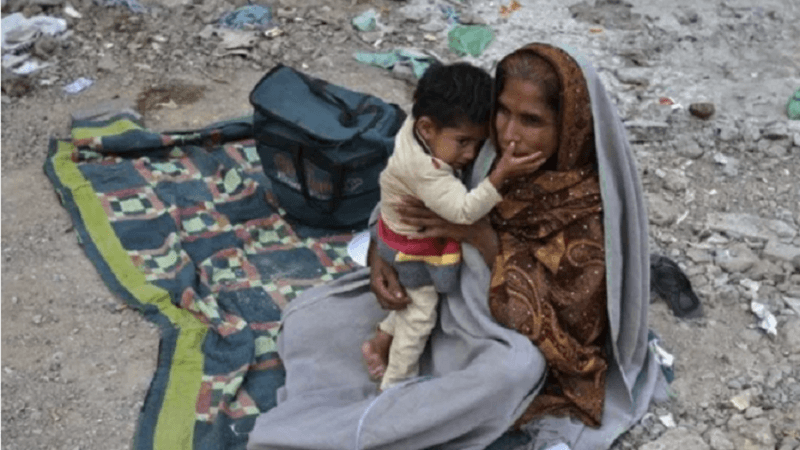
The National Nutrition Survey 2018 discovered that most of the Pakistani families are not able to meet their nutritional needs due to poverty. A large number of children are suffering from chronic malnutrition and stunted growth.
The first-ever survey of its kind shows more than 50 per cent of families in Pakistan are unable to have two meals a day, leading to severe dietary deficiencies.
At least 40.2 per cent of all children in the cash-strapped country are affected by chronic malnutrition and stunted growth, which inhibits both their cognitive and physical development, the exercise carried out by the Ministry of National Health Services (NHS) revealed.
However, the survey also discovered that 36.9 per cent of Pakistani households remain food insecure and lack reliable access to affordable nutritious food in sufficient amounts.
The survey, covering both the rural and urban population of all four provinces - Gilgit-Baltistan and Pakistan-occupied Kashmir, is one of the biggest in Pakistan's history. The objective of the survey is to draw the attention of authorities towards the ever-growing problem of malnutrition among Pakistani children.
As many as 115,600 families, including 145,324 women, 76,742 children under five years of age and 145,847 minors aged between 10 and 19 years were studied during the course of the survey, a media report quoted the survey as saying.
Teams conducting the research took blood and urine samples from participants and investigated water quality and sewerage situation in and around their homes to determine their natural body development and whether it was hindered by diseases or lack of nutrients, it said.
Among the key findings of the survey is that only 48.4 per cent of women in Pakistan breastfeed their children during infancy. It also found malnutrition to be at least partially a hereditary issue as women who lacked necessary nutrients in their diet gave birth to weak children.
The International Monetary Fund, together with other international partners, is working closely with the government of Pakistan to support the implementation of the economic reform programme. Recently, the IMF cleared a $6 billion bailout package to Pakistan to overcome the financial woes.
Four out of every 10 children under the age of five in Pakistan were discovered to be affected by stunted growth and lack of education and awareness was found to be a significant factor behind this.
The study also discovered dietary discrimination in the favour of boys over girls in a significant number of families in the country.
Chairman of the National Institute of Child Health, Prof Jamal Raza noted that it is alarming that the percentage of children suffering from malnutrition in Pakistan is the same as 24 years ago. Stressing on the importance of a proper diet during pregnancy, Raza urged expecting mothers to realise that what they eat is transferred directly to their children.
(With agency inputs)















